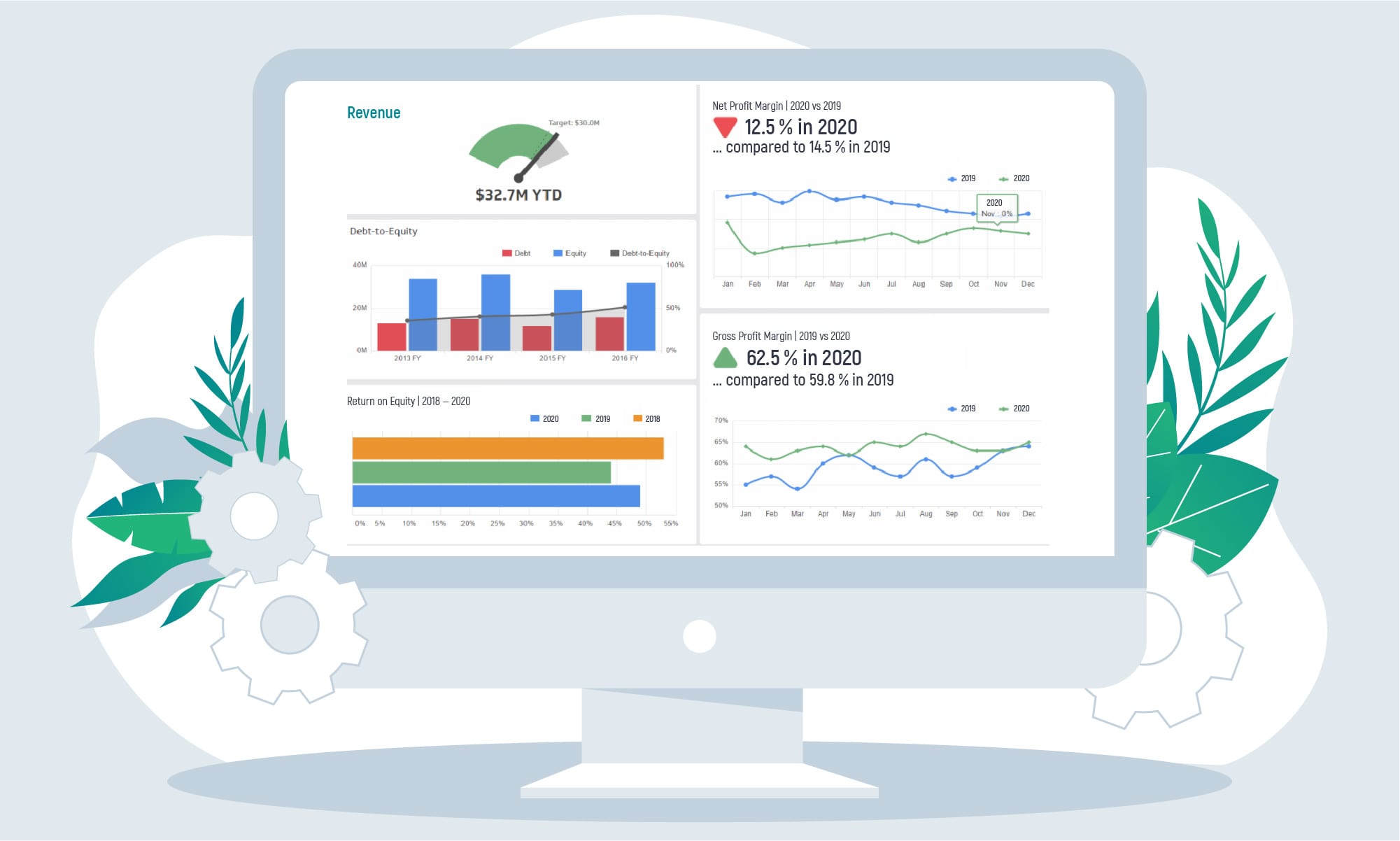Most of the time real-estate agencies manage and respond to lots of incoming requests, sell properties, get in contact with current and potential customers, etc. All of these processes can be optimized with CRM software for property management that helps you seamlessly manage your business from one platform.
What else real estate CRM system can offer you? Think of digital marketing automation, service personalization, or closings management. The software helps to manage relationships with customers effectively, whether they are buyers, renters, owners, tenants, and so on. CRM software is expected to reach over $80 billion by 2025, this tool seems to be useful and frequently used.
We are here to help you understand what CRM means in real estate, what it will cover, and how to use it. CRM belongs to the new product development process of today! So, let’s proceed.
- Main goals of using CRM software for the real estate industry
- Well-organized business processes
- Risk monitoring
- Data-driven decisions
- Lead generation
- Increased revenue
- Managed deals
- Contact management
- Deal management
- Workflow automation
- Emails and call logs
- Reporting and analytics
- Third-party integration
- Common types of CRM software for real estate
- Cloud-based applications
- Desktop software
- Cross-platform solution
- Our tips for choosing CRM software for real estate
- Identify business needs
- Work with a CRM platform that is easy to use
- Include specific features
- Don’t forget about a security
- Develop a custom CRM
- What Business Needs Does It Cover?
- Real estate agents and realtors
- Administration team
- Marketing team
- Sales team
- Customer support team
- Our Experience
- Final words
Main goals of using CRM software for the real estate industry
Wondering what is CRM in real estate? Let’s explain it with reasons why it builds better relationships with your customers.
Well-organized business processes
A CRM software manages huge amounts of data and stores it all in an organized way. Your business must keep your internal information organized and be able to access it in just one click. Saves time and makes engagements with your leads and customers smooth.
Risk monitoring
With efficient CRM platforms, companies analyze the market and forecast potential risks or even future trends.
Data-driven decisions
With the help of CRM platforms, companies convert the unstructured data into a structured format to visualize it and generate actionable insights. It let you forecast future revenue, improve the effectiveness of sales, and other operational activities.
Lead generation
A management system helps you gather new leads in a cost-efficient way. Based on online interaction with your website, CRM software analyzes user activity, provides you with insights about their interests, and sets an approach to reach them.
Increased revenue
Custom real estate CRM allows you to generate extensive reports for your business. What can it bring to your business? With reports based on sales, property, seller, and customer data, you can identify the strengths and weaknesses of your current roadmap and come up with one if necessary. This leads to optimized internal processes, sales, reduced operational costs, and increased revenue.
Managed deals
Real estate CRM software lets you close deals in a quick way.
Are you still interested in the meaning of CRM for real estate? Let’s find out what other features it can offer.
CRM software for property management has to offer you:
- Customer support desk
- Closing deals tracking
- Market automation tools
- Appointment scheduling
- Email marketing
- Customize workflows
- Social media management
- Tasks assignments
- Invoices tracking
- Follow-ups sending
CRM software for property management includes the following benefits:
Contact management
One of the core features of a CRM system is to store and use details to support your relationships with clients. Additionally, there is a possibility to facilitate work for your sales team by integrating with social media accounts or contact applications.
Deal management
By setting tasks, and deadlines, this feature helps your team increase productivity to close the deal.
Workflow automation
Automation is always an advantage. For instance, scheduling emails to contacts can advance relationships and save your agents a bunch of time and let them focus on more critical tasks.
Emails and call logs
CRM platform keeps track of customer communications, updates information, and reduces human mistakes.
Reporting and analytics
Customized reports on your sales and marketing activities are a tool for doing business. Plus it’s a convenient way to keep your team on the same page.
Third-party integration
Integrating with other business software increases the information you have on contacts and lets you add additional features to the system.
Common types of CRM software for real estate
There are different types of CRM for real estate. Usually, they are divided into specialized CRMs that are built for realtors, and general – customized for real estate businesses. If you’re looking for a CRM solution, you can consider either approach but bear in mind that general platforms require some configuration, but can easily be adapted for your needs.
Cloud-based applications
This type of CRM for property management runs over the web. As long as you have an internet connection and permission to log into the system, you have access to the company’s data anytime anywhere.
Desktop software
This type of CRM is considered to be a program that runs on a laptop or desktop computer locally. As for us, it is an inconvenient approach for the real estate industry because users can access applications only from a host computer.
Cross-platform solution
In our opinion, this is the most useful solution you can offer your company. Imagine, that you and your agents can access the CRM system from their desktop and mobile devices simultaneously. This brings lots of advantages, for instance, time-saving as you can quickly perform your daily tasks from every location you need to.

Our tips for choosing CRM software for real estate
The process of selecting CRM software for property management includes a few things to consider.
Check out the top benefits of CRM in the healthcare industry.
Identify business needs
Determine what you want out of your CRM platform before making a final choice. Please note that no CRM system fits everybody. All of the CRMs have their pluses and minuses. So you have to decide what is the most you want to get out of this, whether you want to manage your contacts in a convenient way or track deals. Narrow it down and decide which CRM is going to be your best choice.
Work with a CRM platform that is easy to use
Once you’ve determined your needs, you may deploy a CRM that is customized to your working environment. It has to make your work easier by centralizing all the information you need in one place. So choose it wisely or even better is to turn to experts to create a custom version.
Include specific features
One of the main advantages of a CRM is the ability to deliver reports and comments in real-time. Access to such valuable insights strengthens every team. It also may provide you with pathways for business development, help to boost performance, and survive in a competitive marketplace.
Don’t forget about a security
With the help of the CRM system, you have access to the internal data stored in the cloud from every device, anywhere, at any time. Especially, it can concern a real estate industry as agents are moving from one property to another most of the time. So, security is a crucial thing you can’t work without. And your CRM must satisfy these basic needs.
Develop a custom CRM
There are plenty of different CRM systems available on the market. But not to adjust the whole company to the existing platform, adapt it to yourself instead. To satisfy your specific business needs, consider hiring a partner to outsource the development of a custom platform that will be designed just for you.
What Business Needs Does It Cover?
Before choosing a CRM for real estate services let’s discover who are the objects that use it.
CRM for real estate provides value for various teams within an industry:
Real estate agents and realtors
This group uses a CRM to:
- Discover valuable information about the property they are showing
- Get insights about potential buyers, sellers, and renters, including their specific needs
- Maximize closing rates by matching the right property with the right person
Administration team
- Manages properties, and adds them to the system, so every team member has access to updated information
- Follows the policies
- Sets up appointments
- Interacts with clients
- Creates reports (leads, clients, closures, and revenue)
Marketing team
- Advertises property for the right audience
- Identifies the properties that will benefit the most
- Segments the audience and launch marketing campaigns for each
- Tracks the success of the marketing campaign
- Generates leads
Sales team
- Gathers information about buyer, seller, and renter to manage them through the closing process
- Interacts with third parties
- Ensures law compliance
- Manages real estate transactions
Customer support team
The customer service team will use a CRM to:
- Answer questions from clients with personalized responses
- Contact customers in multiple ways and through different channels
- Informe clients of updates
- Identify and resolve issues
Our Experience
Inoxoft has 8 years of experience in the global software development market. In particular, our experts provide custom real estate software development services and create the finest CRM solutions to lead real estate companies through the challenging process of property management.
Want to have a closer look at our projects? Check out our portfolio.
Final words
CRM for real estate services is a groundbreaking solution to enhance the positive experience within the industry. If you are considering becoming a realtor, real estate agent, or company owner, you need to know how to choose CRM for property management that will help you manage, attract, and retain clients. Contact us to get insights from our experts!











